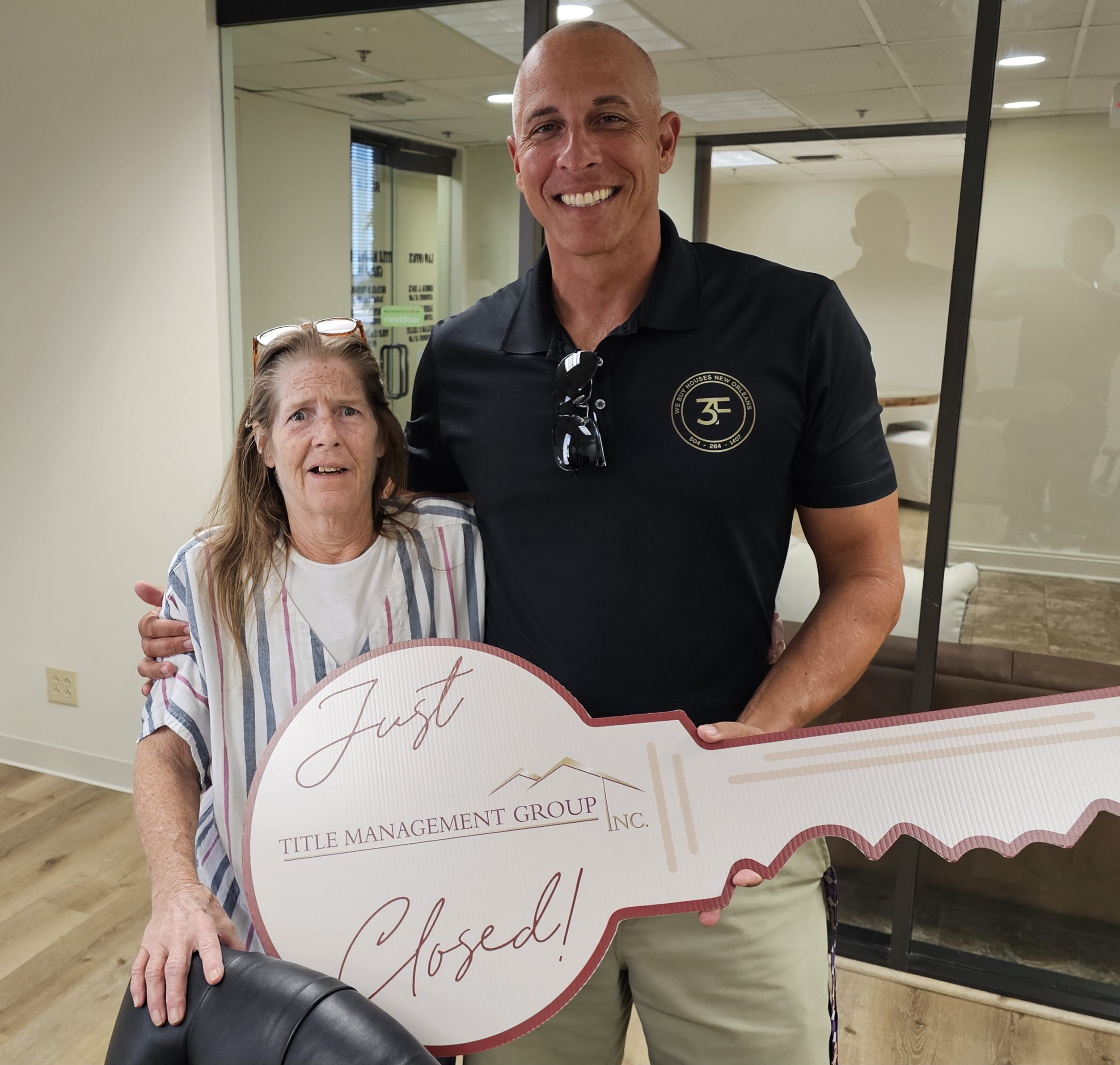Hey there! I’m Carl from NOLA Buys Houses, and my team and I have been helping homeowners sell their houses fast for cash for 25 years. Maybe you’re dealing with a house that needs major repairs, or you inherited it and live far away. Maybe you’re stressed about foreclosure or just want to skip the hassle of listing. Whatever your situation, I can help you sell your home fast, fairly, and without using a realtor.
Here’s how we do it, and why it’s such a simple choice.
1) Why Sell Without a Realtor?
Real estate agents can be helpful, but they come with costs and complications:
a) Commission fees typically range from 5–6%. On a $200,000 home, that’s $10,000–$12,000. That’s money you don’t get to keep.
b) You may need to pay for repairs, cleaning, or staging before listing.
c) The process can be slow, and this has nothing to do with real estate agents themselves, it’s just the process. It can take weeks to even get your house listed. Cleaning it up or clearing it out. Then they have to come measure all the rooms etc, then they have to get pictures taken, and all that before it is even on the market, Then once it’s on the market you are waiting for showings, negotiating with buyers (if someone is interested), and if you get to an agreement there are appraisals, inspections, and loan approvals etc. IT’S A LOT OF STUFF
With NOLA Buys Houses, you skip all of that. We offer a fair all-cash offer within 24 hours, you don’t pay agent fees or closing costs, and we can close in as little as 7 days, or on a schedule that works for you.

2) How It Works: My Friendly, 3-Step Process
I want this to be easy. Here’s how we walk through it together:
1) You reach out , call or fill out a form on our site. Tell me about your property and situation.
2) I evaluate your home , fast, fair, and flexible. Within 24 hours, you’ll get a no-obligation cash offer. What I quote is what you get, I cover all closing costs and the offer is yours to keep (minus any liens)
3) You choose a closing timeline , want to close in a week? I can do that. Need time to move or clear out? No problem, I’ll work with your schedule
No appointments, no cleaning, no realtor back-and-forth, just straightforward, honest help.
3) Why Working with a Local BuyerMatters
Being local makes a big difference:
- I know New Orleans neighborhoods, market values, and what makes homes unique, whether it’s a shotgun double uptown or a cottage in Gretna.
- There’s no waiting on out-of-town buyers. I respond quickly and personally, helping homeowners when they need it most. Most of these out of town buyers are not real buyers anyways. Ask them, they will tell you about their partners or their team or whatever. If they mention stuff like that it should be a major red flag.
4) No Stress, We Buy in Any Condition
Your house might need major repair. You inherited it after a loved one passed. Maybe you’re behind on mortgage payments, or the house is just cluttered or outdated. That’s okay.
I buy houses as-is, in any condition or situation whether it’s fire damaged, filled with clutter, or just not ready for the market. You don’t have to lift a finger, skip the repairs, the cleaning, and the costly updates.
5) Real People, Real Results
Since 2001, I’ve helped over 1,200 homeowners get a fair cash offer and sell quickly, stress-free, and on their terms nolabuyshouses.com.
Here’s what a typical experience looks like:
- Inherited a property while living out of state? I’ll buy it fast.
- Facing foreclosure or behind on payments? I’ll help you avoid financial pain, and help you move forward.
- House in need of major renovation? Sell it as-is and keep your sanity.
- Need extra time to move? We’ll customize the closing date to fit your life.
6) Final Thoughts, Selling a House Without a Realtor Is the Simple and Stress-Free way to go
Selling your home doesn’t need to be complicated, or expensive. If you want:
- A fair all-cash offer fast
- No cleaning, no repairs, no realtor fees
- A local expert who genuinely cares
- A process that works on your timeline
Then reach out to me at NOLA Buys Houses. I’ll walk you through everything, and you can decide if it’s right for you. No pressure, just a quick, honest way to move forward.
Ready to see how much we will offer for your home? Fill out the simple form on my website, or call me directly at 504-264-1407. I’m Carl, and I’m ready to help you sell your New Orleans home the easy way.


































